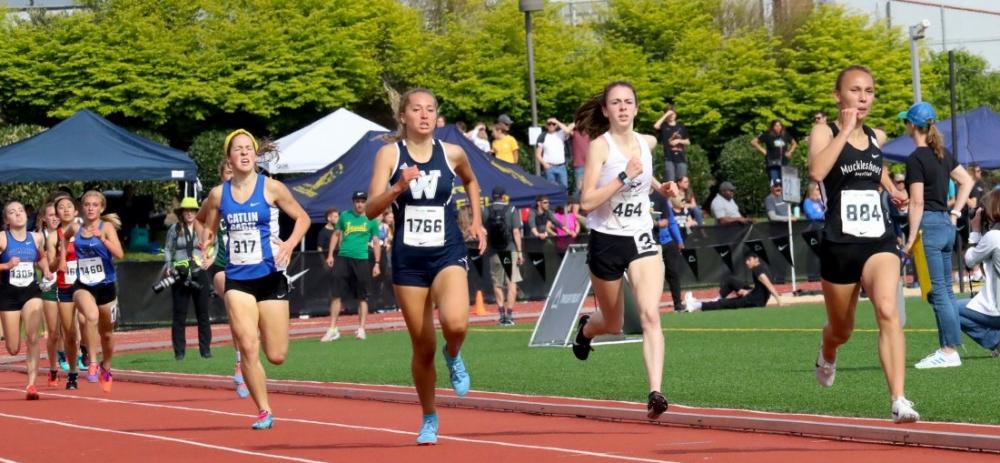Folders |
Flight Plan - Rosalie Fish Aims For More Than State Meet GloryPublished by
Flight Plan Rosalie Fish Aims for More Than State Meet Glory
A DyeStat story by Dave Devine ____________________
On certain clear days, after the wings have leveled off and she’s double-checked all the instruments, Rosalie Fish can relax in the Cessna 152 she’s piloting. She might glance at the empty seat where her instructor used to sit, the unattended co-pilot yoke that means the plane is all hers, and feel a brief comfort in the fact that she’s soloing now. Might scan the horizon past the churning propeller and feel a fleeting sense of calm. Her life, so hectic these days, momentarily settled. The senior year of high school she’s trying to complete. The associate degree she’s attempting to wrap up at the same time. Flight hours for her pilot’s license. Prom at the Space Needle. The Washington state track and field meet, where she’ll attempt to win four races in the 1B classification. A college that awaits in Iowa. The hopes and expectations of people she knows and doesn’t know, numerous Native communities — her people. All far below. If the visibility is good, she might take in the rolling, expansive landscape, the forested hills and weaving waterways where the Coast Salish peoples once lived freely for centuries before the trappers and settlers arrived. Before the white colonists came bearing empty promises and hollow treaties, attaching their own blunt names to this geography, erasing the ancient tribal words for these rivers and hills. Before the first people to occupy this land — the Buklshuhls, Duwamish, Snoqualmie, Upper Puyallup — were hemmed into a tiny reservation along the White River near present-day Auburn, Washington. The Muckleshoot Reservation. Some days she might see the reservation from above, too. The Cessna’s altitude not so high that she can’t make out the way her community exists along the river, yes, but also along the margins. The disparity between nearby neighborhoods and her own. The patchwork of fields and modest homes. The tribal buildings. Casino at the southeastern edge of Auburn. But also, maybe, the red tribal school track. The reservation roads where she’s learned what it means to be a distance runner. All the places she’s put in the work, logged the miles, carved herself into one of the best small school runners in the state. The pathways where she’s planted her dreams. All of that is down there, too, just waiting for her to land. Pre-Flight It might be tempting to see Rosalie now, with a state track title last year and four district golds already this spring, with a winter berth on the Wings of America cross country team and a schoolwide signing ceremony when she inked her college letter of intent, and to imagine that this was somehow pre-ordained. That it was all predictable, based on hard work and precocious talent. But it wasn’t. A member of the Cowlitz tribe, whose traditional lands lie further south, near Portland, she has strong ties and family connections to the Muckleshoot, and has grown up on that reservation 35 miles southeast of Seattle. It meant a childhood surrounded by daily reminders of the difference between life on and off the reservation. “For me,” she says, “it’s really secluded. I think it’s neglected, in a lot of ways.” All around her, she sees the impact of economic disparity and institutional disadvantage. The ways that alcohol and drug addiction can ravage and unravel families. “It’s an historical trauma,” her coach, Mike Williams, says. “One that has been passed on generationally. Depression, substance abuse, suicide — it’s a lot more prevalent in our community than in a typical community.” Rosalie is frank in saying she has experience with all of it. While Muckleshoot Tribal School, which opened in 2009, welcomes students from kindergarten through 12th grade, Rosalie spent her early years at a local public school. Struggles she experienced there came to a head in ninth grade, and eventually left her hospitalized in a mental health facility. “That’s part of my story and my path,” she acknowledges. “I’ve shared it at my (current) school with the middle schoolers — saying that this is how my high school years started, but just because you’ve started in this spot doesn’t mean you need to stay there.” By the time she was ready to resume classes in the spring of that year, she’d missed significant schoolwork. Her family decided to enroll her at Muckleshoot Tribal School, where her mother, Autumn, teaches Whulshootseed language classes. The change was largely positive; Rosalie was able to catch up academically, became involved in extracurricular activities, and resumed a modest running career she’d begun in middle school. “Honestly, I did it because people told me I was good at it,” she says, “and I liked being good at something.” Eventually, running became more than a way to simply garner compliments. It became an alternative to numbing the pain and trauma so prevalent around her. “I realized it could help me in life,” she says. “That it could keep me away from some of the things consuming other kids on my rez. That’s when it got important. That’s when it got enjoyable and empowering.” But even as her own affection for the sport grew, her progression was hampered by inconsistent coaching. Each season brought a new mentor. “They all had good intentions,” she says, “just not always super helpful.” Even as Rosalie’s times dropped, even as she became a 1B state contender, she had no one who could answer the question that had dogged her since she first realized she might find success beyond the reservation. What can I do to take running to the next level? Takeoff When Mike Williams arrived at Muckleshoot for the start of Rosalie’s senior year, three years of coaching instability left her skeptical that the latest iteration would be any different. “We didn’t get along at first,” she allows. “It took a lot of maturing on my part.” She was understandably guarded, wondering what this white guy with the heavy Southern drawl knew about running or life on her reservation. What he might possibly know about working with Native kids. Then she learned that Williams, whom she’d previously met when he coached at Chief Leschi, another tribal school about 40 minutes away, is a foster parent to Native American kids. She witnessed his devotion to those children firsthand, causing some of her distrust to soften. “I grew in my respect for him,” she says. She noticed that Williams, unlike previous coaches, refused to “baby her.” He took Rosalie at her word that she wanted to improve at running, and then provided some clear ideas about how to get there. At first, she didn’t like the answers. “I didn’t want to address it,” she says. “I didn’t want to talk about how I might get better. And the first thing that Coach Mike did was ask about some of the bad races I’d had.” Williams, whose own love for track and field had been fostered as a student at the University of Arkansas, where he’d witnessed a steady stream of Razorback national titles, pushed Rosalie to take a hard look at aspects of her life that might be holding her back. “There wasn’t really anyone else who was going to help me make that breakthrough,” she says. “Like — if you want to be good, you can’t drink anymore. You can’t party anymore. And it was hard at first, because, honestly, that’s how you make friends here. That’s how you keep your friends if you grow up together.” Going all-in on running also meant, in part, cutting against the grain of her previous life on the reservation. And unlike peers on local teams that were brimming with full rosters, for Rosalie, it often meant making those decisions alone. “She’s almost a team of one,” Williams says, “We had a few other girls on the track team, but pretty much all of her training, all the workouts, she does by herself.” Running isn’t the only area in which Rosalie has had to blaze her own path. This year, through the Running Start program, she’s attending classes full-time at Green River College to earn an associate degree along with her high school diploma. She’s the president of the Native American Club at Green River, even though she’s technically still a 12th grader. She has a growing involvement in activism related to Native and Indigenous women.
“I was looking at the list,” she recalls, “and it was like, Forestry Club…Music Club…and then, Airplanes. I was like, What in the world?” Boeing, the Seattle-based aviation giant, had funded a pilot training program at the high school, but strict requirements around academic achievement and school attendance proved somewhat unrealistic. “The next thing you know,” Rosalie says, “they had funded this program and nobody was qualified.” A school counselor asked if she’d consider signing on. “At first I was terrified,” she says, “but I definitely feel a lot more comfortable in the plane now. It almost feels like starting up a car sometimes, with how repetitive it’s gotten.” She’s hoping to complete the requirements for her private pilot’s license by July. Some afternoons, in order to squeeze in a workout and her solo flight hours, she flies to an airfield in Puyallup, where Williams lives, and meets with her coach there. “I just land the plane,” she says, “and then drive to wherever we’re running, do my run, and then come back and fly home.” Wings Level Last November, in the wake of a disappointing cross country race at the Nike Cross Northwest Regional, Williams and Rosalie regrouped at the Boise hotel where they were staying. In Rosalie’s mind, her 77th-place finish in the Nike Cross National qualifier seemed definitive — the season was over. But something was gnawing at Williams. It had been, by almost any measure, a successful senior campaign. Rosalie had run well in several large invitationals, placed second at the District IV meet with her first 5K under 19 minutes, then stormed to a third-place finish at the 1B/2B WIAA State Championships in Pasco. But none of those performances qualified her for the Wings of America traveling team, and that had been the goal since the beginning of the season. Wings of America is a New Mexico-based organization providing Native youth a platform to represent Native communities through the sport of running. One of their annual initiatives is the selection and support of a Junior team to compete in the USATF National Cross Country Championships held each February. Runners qualify by competing well at any Foot Locker or Nike Cross Regional race. “That was the main goal of the whole season,” Williams says. “Make the Wings team. Our practice plan was — not to taper at State — but to shoot for the qualifying meets after that. She really wanted that team.” Coach and athlete circled the Nike Northwest regional in Idaho, easily the nearest qualifier, as their target race. But on a notoriously rugged, uneven Eagle Island State Park course, Rosalie struggled to her 77th-place, 19:26 finish. Not good enough to make the Wings. Back at the hotel, Williams refused to concede the dream had slipped away. “The minute he knew I didn’t run faster enough at Nike Northwest,” Rosalie, says, “he got on the computer. An hour later, he was like, ‘We can still do this.’” The coach realized an opportunity might still be available, one week later and 1,500 miles south, in Casa Grande, Ariz. “I started pouring through Athletic.net,” Williams recalls. “Eventually I was looking at the (Nike) Southwest meet, and how all these girls were PR-ing down there.” He called Rosalie’s mom from Boise, asking if there was any way the family could manage the cost of Rosalie’s travel to Arizona. “Her mom said, ‘Of course, we can get her there.’ So, she went down to take one more shot.” Rosalie made the most of her second chance, claiming seventh in the small-school open race with a much-improved 18:53 mark that afforded her a berth on the Wings Junior team. In the subsequent days, Rosalie received a detailed training plan to prepare for the February race — “I had never even trained over the winter before,” she says — and the Wings staff flew her to Santa Fe during winter break for a multi-day training camp.
She thrilled at pushing the other girls in workouts, trying to hang with them on repeats. Girls who knew reservation life, knew the things she’d seen. The things she’d sacrificed, the hard decisions she’d had to make. Girls who really saw her. “Even though I’m from Washington,” she says, “and they might be from Arizona or New Mexico, we can talk about the same issues we have, the same things our friends are doing, the same things we have to try and avoid.” While the USATF race was a success for Rosalie — she finished 22nd as the fourth scorer for the runner-up Wings Junior women — it was the connection with fellow Native runners that left the deepest impression. “It was like I already knew these kids,” Rosalie says. “I already knew part of their story, because it’s also mine.” Approach There are days, even now, when Rosalie wonders what would happen if she went for a run and disappeared. That might seem surprising for a state champion distance runner, one of the most visible student-athletes at Muckleshoot Tribal School, but there it is — inescapable. To grow up as a Native American girl on a reservation is to grow up keenly aware of your own vulnerability, your inescapable exposure to violence. According to federal crime statistics, when compared to national averages, indigenous women are two-and-a-half times more likely to be assaulted, two times more likely to be stalked, and five times more likely to experience interracial violence. A 2008 Department of Justice report found that Native women on some reservations are 10 times more likely to be murdered than the national average. Making matters worse, those crimes against already-marginalized women are less likely to be investigated by law enforcement or reported by the media. Rosalie can’t recall a time when she wasn’t aware of the threat, even if she didn’t have the statistics or words at the time to articulate the issue. “When you grow up living on the rez, you kind of know, This isn’t…normal. My non-Native friends don’t have these same issues.” When she noticed a hashtag starting to trend among Native communities and indigenous advocates — #MMIW, for Missing and Murdered Indigenous Women — she realized that it wasn’t a cause or a campaign she could elect to join. She didn’t have a choice about whether to care or not. For Rosalie, it wasn’t simply a hashtag. “I see it on my reservation, in my own family,” she says. “I’ve had family members and relatives who have been murdered or missing. It was relevant to me, whether I’m engaged in the issue or not.” So, she reached out via social media to Jordan Marie Brings Three White Horses Daniel, a Native runner who completed the 2019 Boston Marathon with the MMIW initials written on her legs and a stark red hand painted across her mouth. For each of the 26 miles Daniel completed, she prayed for a different Indigenous woman she knew to be missing or murdered. “I was really inspired by her,” Rosalie says. “I was passionate about activism, and I was passionate about running, but I’d never thought to combine the two like that. I never thought about using running as a platform to bring awareness to these issues.” When Daniel messaged back, expressing interest in her young admirer’s own accomplishments, Rosalie admits to experiencing a fangirl moment. “I was freaking out,” she says. “She’s kind of a celebrity to me...I couldn’t believe she cared about what I was doing.” With an eye on the upcoming state meet, where she’ll enter four events (400, 800, 1,600 and 3,200 meters) as the top seed, Rosalie asked Daniel’s permission to emulate the marathoner’s Boston activism with her own act of advocacy. Daniel was fully supportive, encouraging Rosalie to spread the message. While Rosalie won’t say exactly what she has planned, she’s been reaching out in recent days to the local Native community, gathering the names of female family members impacted by disappearance or murder. Her coach is equally supportive of the effort, and has done the homework to ensure his runner doesn’t run afoul of state regulations. “She’s definitely very passionate about it,” Williams says, “and she wants to be able to use her platform at state to bring an awareness outside the (tribal) community.” For Rosalie, the approach feels both necessary and personal. “If we don’t say something, it becomes normal. I’m not able to ignore it, even if I wanted to.”
Landing Back in September, after Rosalie realized she could trust Williams, that she and this guy with the Southern accent might work well together, she shared one of her goals with him. Her dream was to run collegiately for the University of Oregon. Fresh off a junior-year state title in the 3,200, and a runner-up finish in the 1,600, her best marks at the time were 11:45 and 5:24, respectively. Williams, impressed with her ambition, knew he had to help Rosalie reframe the goal — or at least her timeline for accomplishing it. “I had to sit down with her,” he says, “show her some times and explain to her that she can have that dream, but these are the times those girls are running. There’s going to be a lot of work involved, and it’s probably not going to be able to happen within a year.” It doesn’t mean he doubts she might get there someday. “I think she has a huge ceiling,” he says, pointing to Rosalie’s low mileage, outstanding work ethic, and relative inexperience with high-level racing. A recent performance at the Nike/Jesuit Twilight Relays in Portland, where she won the Varsity 1,500 meters in a personal best of 4:40.18, suggests she may just be scratching the surface of her potential. Which is why, after extensive conversation and research by Williams this winter, Rosalie decided to sign with Iowa Central, a two-year college that has won a host of NJCAA national championships in recent years, including the last two women’s cross country titles. “I really liked their program,” Rosalie says. “Coach (Dee) Brown said he liked my potential, and that was something, I guess, that I really needed to hear.” Earlier this spring, she became the first student-athlete in the 10-year history of Muckleshoot Tribal School to publicly sign a letter of intent to compete collegiately. Ryan Gilmore, athletic director at the school, says there’s no question where Rosalie falls on the all-time list of Muckleshoot student-athletes. “She will be, by far, the most decorated and celebrated athlete we’ve ever had in the decade since the school was started.” At the upcoming state meet, with four events on the slate over the course of three days, she’ll have an opportunity to expand the history-making well past the boundaries of the reservation she calls home. But if any of that gives her pause, if she’s hesitant about the prospect of attempting the ambitious quadruple, she’s not letting on. She has plenty of other things on her mind. A high school diploma and an associate degree to wrap up. A pilot’s license to complete. Concerns and questions about visibility and violence. Activism and advocacy. All the ways she might use her voice and her running to pursue something larger than medals or records. “My running,” she says, “can actually make an impact on other people as well, and not just me. And that made me realize this is something I want to do for as long as I can.” ### More news |


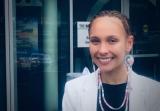

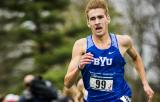
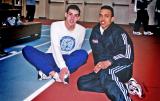


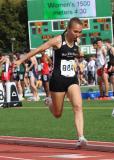



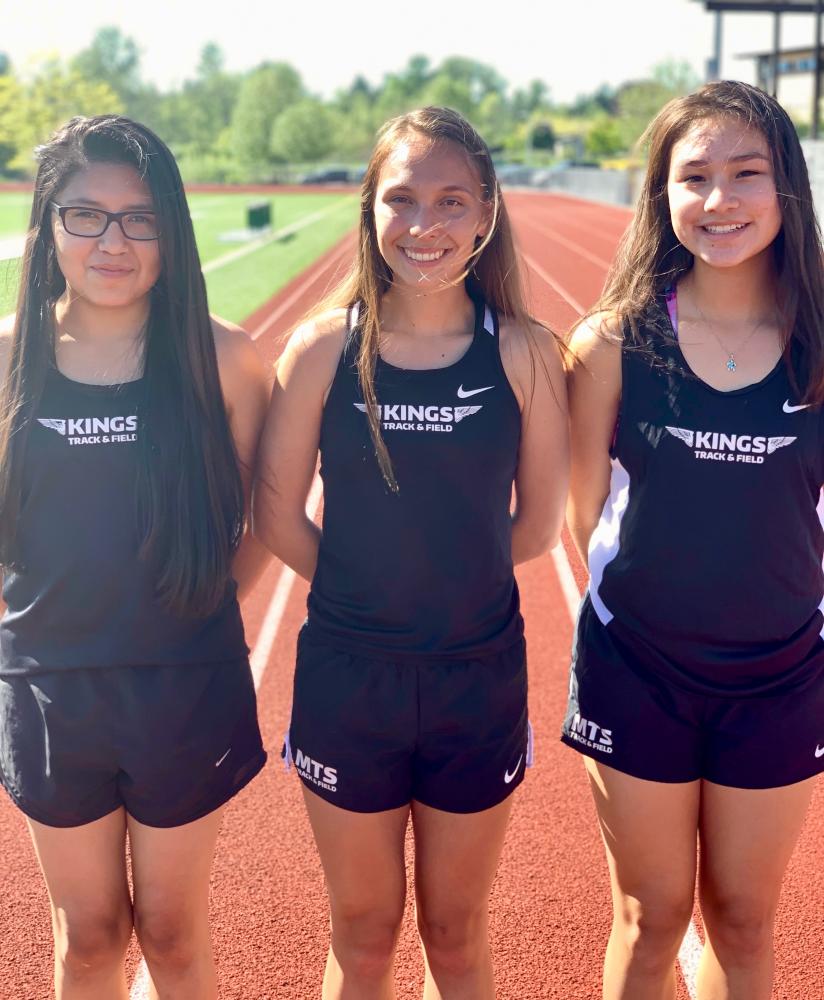
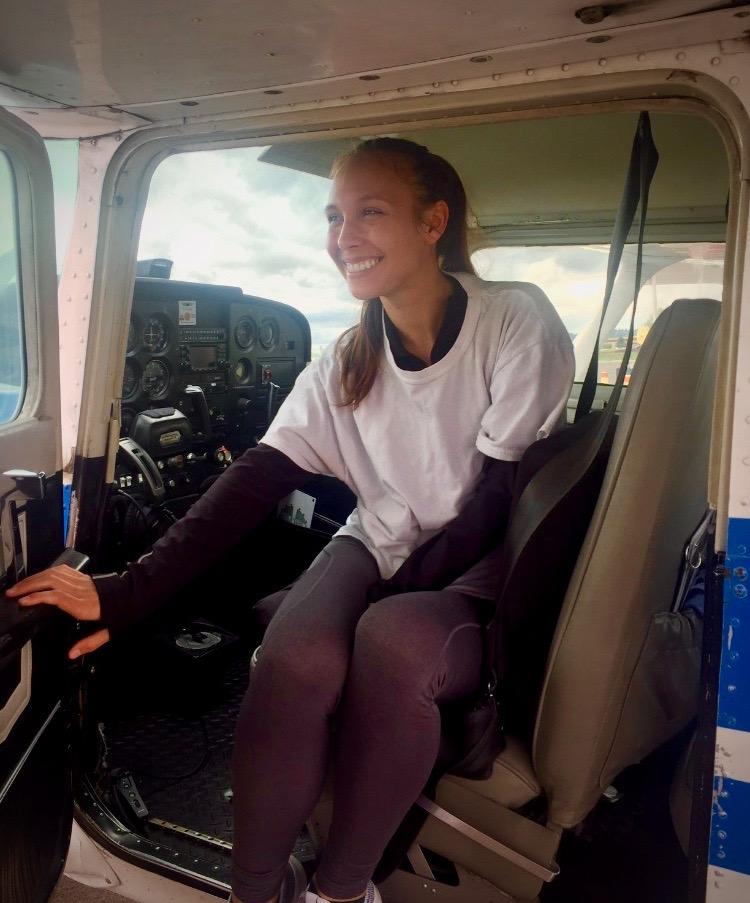 And then there’s the flying lessons, something Rosalie was surprised to discover on the list of afterschool activities when she transferred to Muckleshoot.
And then there’s the flying lessons, something Rosalie was surprised to discover on the list of afterschool activities when she transferred to Muckleshoot. 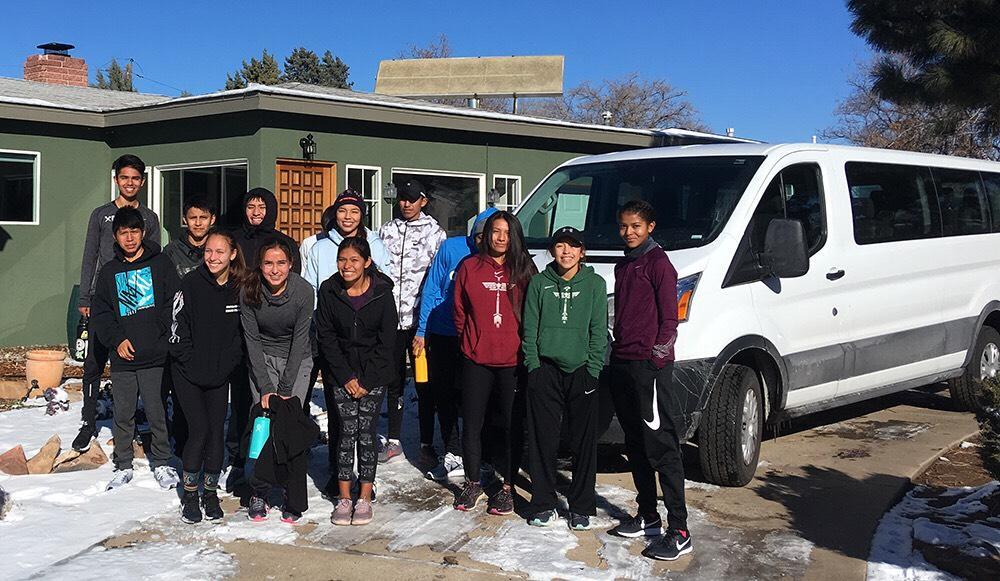 When she arrived in Santa Fe, Rosalie was the only athlete on the team — girls or boys — who didn’t hail from either Arizona or New Mexico. That geographic difference left her uneasy, but she soon found herself surrounded by a group of like-minded teens who became the closest thing she’d ever had to the one thing she’d always missed — a team.
When she arrived in Santa Fe, Rosalie was the only athlete on the team — girls or boys — who didn’t hail from either Arizona or New Mexico. That geographic difference left her uneasy, but she soon found herself surrounded by a group of like-minded teens who became the closest thing she’d ever had to the one thing she’d always missed — a team. 